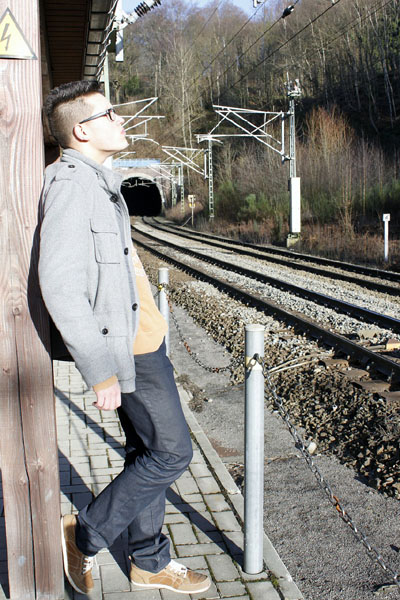Suicide Prevention: Talking About Suicide with Your Family
“Most of the important things in the world have been accomplished
by people who have kept on trying when there seemed to be no hope at all.”
– Dale Carnegie, Legendary Self-Improvement Author
Steve Johnson is a pre-medical student and part of PublicHealthLibrary.org a “pet project of premedical students who love the opportunity to geek out with medicine and technology while serving the community.” He reached out to KeithKarabin.com because he wanted to share resources about preventing suicide. This is a crucial mission and one that is dear to us here as well. It is with honor and gratitude that we welcome Mr. Johnson for this guest post.
* * *
Suicide Prevention: Talking About Suicide with Your Family
As a parent, you want your children to feel comfortable coming to you for help. Children may feel that certain topics are off limits or taboo, so they may not want to open up about everything. When it comes to suicide prevention, nothing is more important than an open line of communication. This is especially important for teens and adolescents, for whom suicide is the third leading cause of death. If the topic is left unaddressed, young people may not know where to turn if they or a friend are experiencing thoughts of suicide.
Teens and Suicide
 Nearly 20% of teenagers admit to having thoughts about suicide. While it may be difficult to distinguish normal “teenage angst” from a more serious mental health condition, knowing the warning signs of suicidal behavior can help. These signs can include:
Nearly 20% of teenagers admit to having thoughts about suicide. While it may be difficult to distinguish normal “teenage angst” from a more serious mental health condition, knowing the warning signs of suicidal behavior can help. These signs can include:
- Feelings of hopelessness or worthlessness
- Social withdrawal
- Disinterest in activities
- Poor performance in school
- Talking about suicide or death
- Changes in sleeping or eating habits
- Giving away of personal possessions
- Displays of distress (including anxiety or hostility)
If you have noticed any of these signs in your child or a young person in your life, it’s possible they may be considering suicide. It is also important to note that there are several factors that put teens at a higher risk for suicide. While these are not the exclusive determining factors, they do increase the likelihood of a suicide attempt. These factors are:
- Prior suicidal thoughts or behaviors
- Abuse or neglect
- Being adopted
- Major life trauma such as a breakup or death of a loved one
- Mental illnesses (such as Bipolar Disorder or others)
- Family history of mental illness or suicide
- Physical ailments or chronic pain
- Substance abuse
The more factors that are present in someone’s life the higher the risk. No matter who is displaying these factors, it is important that you reach out for help. When you obtain the proper resources for someone experiencing suicidal thoughts or behaviors, you may just be saving their life.
How to Talk To Your Family About Suicide
The topic of suicide can be hard to bring up, but remaining silent about it can be extremely dangerous. To open a line of communication between you and your family, try to the following techniques:
- Find an Opportune Time to Talk: It may be easier to start uncomfortable discussions when you have your child’s full attention, such as during a car ride.
- Understand The Facts: Before your discussion, know the warning signs, risk factors, and resources for help. This can also help you plan what you want to say beforehand.
- Ask Direct Questions: If your child seems unwilling to open up, ask them directly about suicide. Try asking if any of their friends have attempted or struggled with it before—this could be the conversation starter you need.
- Listen Carefully: Having an open and honest discussion means that you must also be an active listener without judgment. Always remember to respond meaningfully to any comments or questions. Try to remain calm throughout the discussion, even if your child has admitted to suicidal thoughts or attempts. And make sure they understand that having these thoughts or other mental health problems does not make them weak. In fact, it takes great strength to talk about these issues.
These types of discussions will allow your family to feel comfortable coming to you if they or a friend are experiencing negative emotions or behaviors. Try to have the proper resources around in case they do need help.
What to Do If You Notice
The Warning Signs or Risk Factors For Suicide
It is important that you know the proper steps and be prepared should your child or someone in your life display warning signs. You can:
- Openly tell them that you are concerned about their thoughts or behaviors
- Listen and respond meaningfully
- Help them get medical attention from a physician and mental health professional (sooner than later if possible)
- Continually check up on their progress.
While you may feel like there is only so much you can do, opening up and being supportive is an important place to begin.
__________________________________________________
Steve Johnson has always been dedicated to promoting health and wellness in all aspects of life. Studying in the medical field has shown him how important it is for reputable health-related facts, figures, tips, and other guidance to be readily available to the public. He created PublicHealthLibrary.org with a fellow student to act as a resource for people’s overall health inquiries and as an accurate and extensive source of health information. When he isn’t hard at work in his studies, Steve enjoys playing tennis and listening to his vintage record collection.


